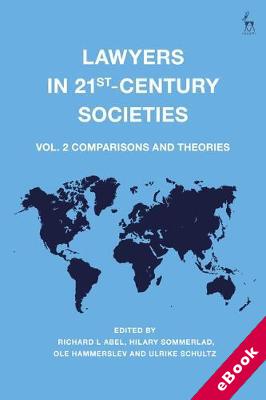We will be closed from 5pm Thursday 17th April for the Easter Bank Holidays, re-opening at 8.30am on Tuesday 22nd April. Any orders placed during this period will be processed when we re-open.

The device(s) you use to access the eBook content must be authorized with an Adobe ID before you download the product otherwise it will fail to register correctly.
For further information see https://www.wildy.com/ebook-formats
Once the order is confirmed an automated e-mail will be sent to you to allow you to download the eBook.
All eBooks are supplied firm sale and cannot be returned. If you believe there is a fault with your eBook then contact us on ebooks@wildy.com and we will help in resolving the issue. This does not affect your statutory rights.
This book presents an invaluable collection of essays by eminent legal profession scholars from a wide variety of disciplines on the main issues currently confronting legal professions across the world. It does this by analysing data provided by the reports in its companion volume: Lawyers in 21st-Century Societies Vol 1: National Reports (Hart 2020). Together these volumes build on the seminal collection Lawyers in Society (Abel and Lewis 1988a; 1988b; 1989). The period since 1988 has seen an acceleration and intensification of the global socio-economic, cultural and political developments that in the 1980s were challenging traditional professional forms. Together with the striking transformation of the world order as a result of the fall of the Soviet bloc, globalisation and the financialisation of capitalism, and technological innovations, these developments underscored the need for a new, comparative exploration of the legal professional field.
This volume deepens the insights in Volume 1; it includes chapters on legal professions in Africa, Latin America, the Islamic world, emerging economies, and former communist regimes and addresses comparative categories including state production, regional bodies and international courts, large law firms, access to justice, technology, casualisation, cause lawyering, diversity, corruption and ethics and regulation. Together with Volume 1, it will inform and challenge conceptions of the contemporary profession, and stimulate and support further research.